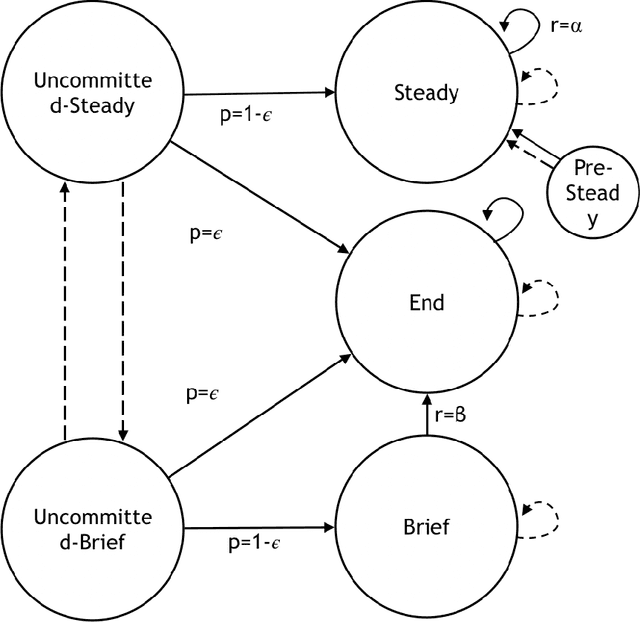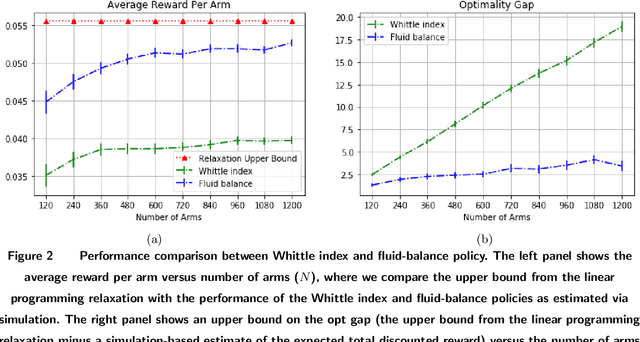Near-optimality for infinite-horizon restless bandits with many arms
Paper and Code
Mar 29, 2022

Restless bandits are an important class of problems with applications in recommender systems, active learning, revenue management and other areas. We consider infinite-horizon discounted restless bandits with many arms where a fixed proportion of arms may be pulled in each period and where arms share a finite state space. Although an average-case-optimal policy can be computed via stochastic dynamic programming, the computation required grows exponentially with the number of arms $N$. Thus, it is important to find scalable policies that can be computed efficiently for large $N$ and that are near optimal in this regime, in the sense that the optimality gap (i.e. the loss of expected performance against an optimal policy) per arm vanishes for large $N$. However, the most popular approach, the Whittle index, requires a hard-to-verify indexability condition to be well-defined and another hard-to-verify condition to guarantee a $o(N)$ optimality gap. We present a method resolving these difficulties. By replacing a global Lagrange multiplier used by the Whittle index with a sequence of Lagrangian multipliers, one per time period up to a finite truncation point, we derive a class of policies, called fluid-balance policies, that have a $O(\sqrt{N})$ optimality gap. Unlike the Whittle index, fluid-balance policies do not require indexability to be well-defined and their $O(\sqrt{N})$ optimality gap bound holds universally without sufficient conditions. We also demonstrate empirically that fluid-balance policies provide state-of-the-art performance on specific problems.
 Add to Chrome
Add to Chrome Add to Firefox
Add to Firefox Add to Edge
Add to Edge